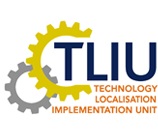Technology intervention for sheet metal manufacturer benefits state-owned companies
Assistance from the Department of Science and Technology’s Firm Technology Assistance Programme (FTAP) enabled Calculus Products (Pty) Ltd to design a unique lightweight and cost-effective service vehicle toolbox for Eskom maintenance vehicles, reducing the expenditure of state-owned companies (SOCs) on service vehicle fleets and reducing manufacturing time.
An enterprise resource planning (ERP) solution implemented by the TLIU has also dramatically improved Calculus’ lead time and operational efficiency.
Calculus Products is a turnkey sheet metal fabricator with the capability to manufacture components to very high accuracies. As a supplier to SOCs, the company was selected to form part of government’s drive to improve the competitiveness of local original equipment manufacturers, and could benefit from the mechanism established for this purpose, the Technology Localisation Plan, of which the TAP is one solution.
“After getting a clear understanding of Calculus’ needs, we approached the Institute for Advanced Tooling (IAT) at Stellenbosch University for its technical expertise in designing the service vehicle toolbox,” explains Masande Dlulisa, Project Manager at the Technology Localisation Implementation Unit (TLIU), a Department of Science and Technology supported initiative hosted by the CSIR.
He continues, “There is no such product available in South Africa currently. The toolbox has retained full functionality and is manufactured faster and at a reduced cost. Eskom is in consultation with Calculus to test the toolbox as a first step towards a possible deployment of the product nationally.”
This technology intervention has led to increased market share and associated job opportunities for Calculus Products as well as enhanced manufacturing skills. Depending on orders generated from the project, Calculus Products’ staff complement could increase by as many as 30.
The ERP system, according to Calculus General Manager Max Dietstein, “eliminates a number of manual operations. Our customers will benefit from on-time delivery in a much shorter lead time. Planning is also improved and we are now able to track actual costs of jobs, which leads to increased skills levels and a further reduced cost to customers.”
Dietstein adds that thanks to the TAP intervention, skills were greatly improved in the areas of advanced scheduling, job processing, handling, progress control, supervision, computer skills and delivery systems.
Ends.
For further information, please contact:
Tendani Tsedu
Media Manager: CSIR
Cell: +27 82 945 1980
Mtsedu@csir.co.za
Masande Dlulisa
Project Manager: TLIU
Cell: +27 73 303 5255
Mdlulisa@csir.co.za
About the TLIU:
The Technology Localisation Implementation Unit (TLIU) is an initiative of the Department of Science and Technology (DST), which is hosted and incubated at the Council for Scientific and Industrial Research. The TLIU was formed by the DST to implement the deliverables of its Technology Localisation Plan. Services provided by the TLIU include:
• Benchmarking and technology capability evaluation services;
• Technology capability platforms, or shared technology facilities;
• Access to technical expertise;
• High-end technical skills development programmes;
• Design and tooling support; and
• Technology transfer benefits/Offset programmes.
About Calculus Products:
Calculus Products is a turnkey sheet metal fabricator with the capability to manufacture components to very high accuracies. The company produces a range of applications for banks and service stations, inside distillation equipment on earthmoving equipment, battleship substructures and equipment used in research stations in Antarctica. Offerings include service vehicle toolboxes; vehicle canopies; point-of-sale stands; doors; assemblies of a repetitive nature comprising vehicle components combined with electronic components or hydraulic systems; signage for Sasol; and agricultural equipment. Calculus operates from premises in Wellington.



